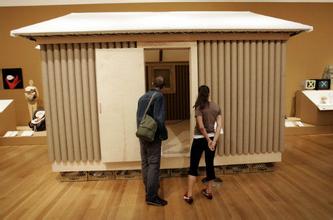
釋義
Skeleton 骨架,骨骼;
closet儲藏室
An embarrassing secret;A secret source of shame, potentially ruinous if exposed, which a person or family makes efforts to conceal.
讓人尷尬的秘密;一個不可見人的秘密,如果暴露就會招致不好的后果;
來源
This phrase was coined in England in the 19th century.
這個詞組在19世紀的英國被發(fā)明。
The English now usually use &`&a skeleton in the cupboard&`&, with &`&skeleton in the closet&`& more common in the USA.
現(xiàn)在英國人用得更多的是skeleton in the cupboard ,美國人多用skeleton in the closet 。
A skeleton in the closet&`& undoubtedly originated as an allusion to an apparently irreproachable person or family having a guilty secret waiting to be uncovered.
儲藏室里的骨架,暗示的是一個沒有過失的人或者家庭做出了不可告人的錯事。
The close-at-hand domestic imagery of a closet or cupboard gives a sense of the ever-present risk of discovery.
儲藏室或者櫥柜里的骨架這個比喻很形象地說明這個秘密很有可能隨時被發(fā)現(xiàn)。
The phrase was first used in the early 1800s.
這個詞組第一次有記載的使用是在18世紀。
The first reference found in print is a figurative one in a piece by William Hendry Stowell, in the UK monthly periodical The Eclectic Review, 1816.
William Hendry Stowell 在1816年英國名叫The Eclectic Review 的月刊中提到。
Two great sources of distress are the danger of contagion and the apprehension of hereditary diseases.
不幸的兩個源泉是這種疾病傳染的危險性和遺傳的恐懼。
The dread of being the cause of misery to posterity has prevailed over men to conceal the skeleton in the closet...
人們擔(dān)心會遺傳給后代,于是都會去隱瞞這個事情。 也有人說這個詞組來源于臭名昭著的搶尸者的年代,也就是在1832年之前,英國的解剖學(xué)法令還沒有允許醫(yī)生使用尸體來做科學(xué)研究,所以有些醫(yī)生會非法藏尸體在家里的儲藏室里。 舉例
1, 王小二想競選總統(tǒng),但是因為他的丑事太多,所以一定不會成功; He&`&s a very popular senator but he will never be elected president; he has too many skeletons in the closet.
2, 剛找男朋友,你媽不喜歡,就問你那個男孩有什么不好的地方,你不耐煩地說: I had only known him for one week. How could I know what skeletons he had in his closet?











